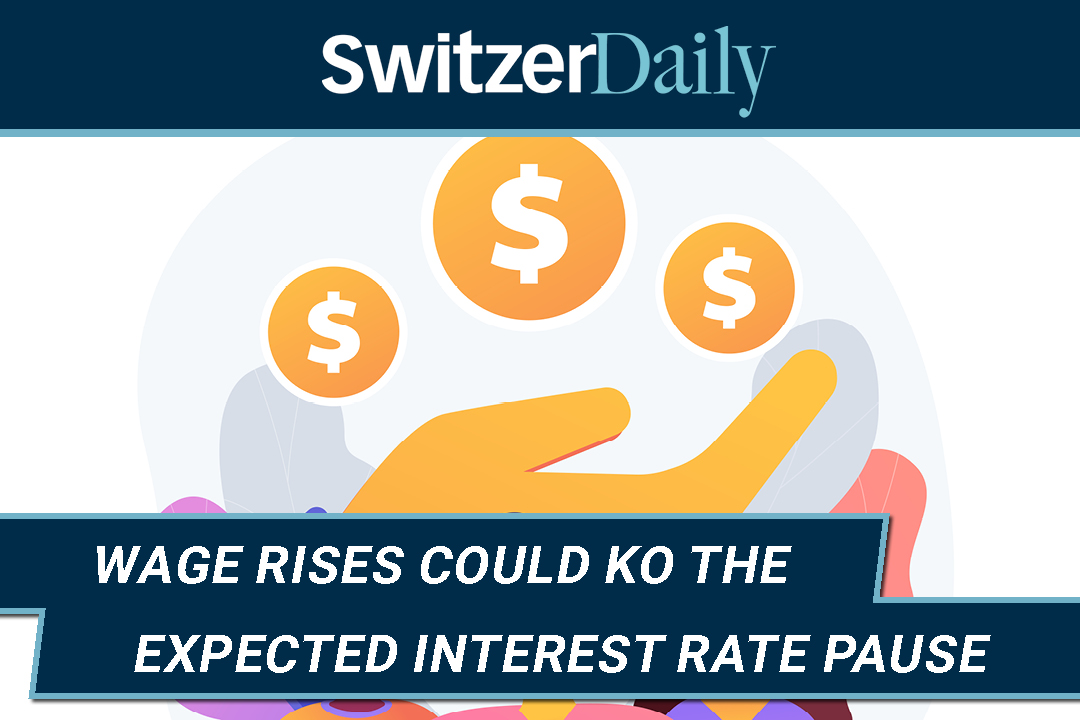

Three big events confront us in the next three working days that could have a big impact on stock prices, wages, inflation, and interest rates. All are price related in so far as they give us a clue about how the news will affect the outlook for inflation and then rates.
The implications of these looming news events made me think of Oscar Wilde, who once said: “A fool is someone who knows the price of everything and the value of nothing”. More on Oscar’s wise observation later.
In the US, they get the latest jobs report Friday their time. If it shows that rising rates are biting prices/inflation hard enough, markets will think US rate rises are close to being over. Wall Street will like that news and it will help our stock market as well, in a usually bad month for stocks, when lots of smarties sell their stocks before June 30 to realise losses useable in their tax returns. It’s why July tends to be a good month for share prices as these smarties buy the stocks again, despite tax laws discouraging such “wash sales”. (The ATO can disallow any capital losses where an investor has engaged in what is known as a wash sale.)
US economists think May could have brought 180,000 new jobs, but if it’s lower and unemployment rises by more than expected, then the job losses will be the price paid to stop the US central bank metering out more interest rate pain.
The Yanks have seen their official rates go up from zero in March last year to 5.25% now. In contrast, our cash rate rises have gone from 0.1% to 3.85% since May last year.
Clearly, the price of beating inflation and stopping central banks slugging us with rate rises is unemployment.
The next two news events locally come today and next Tuesday when the Fair Work Commission will announce its Annual Wage Review 2023 decision, which affects the minimum wage and minimum award pay rates. The National Minimum Wage applies to employees who aren’t covered by an award or registered agreement. This wage decision will affect 2.7 million workers. If the Albanese Government gets its way backing a 7% hike, the minimum wage goes from $21.38 an hour to $22.88, which seems insignificant, but it might hit the bottom line of many businesses.
If this forces the Reserve Bank’s Dr Phil Lowe to go for another rate rise on Tuesday, when a pause was on the cards, then the price of this expected pay rise could be higher home loan repayments. The RBA board will look at this expected wage rise for 2.7 million workers and add in the headlines of pay hikes for aviation workers, ABC staff, and public servants, who want more than the 10.5% over three years offered by the Albanese Government.
They want 20% broken up as 9% in the first year, 6% in the second and 3.5% in the third. They undoubtedly know they’ll never get these big rises, but it does show what demand for higher wages is out there.
This is what the Reserve Bank Governor will be worrying about. If Albo and his team were saying they’d fight big pay increases to help beat inflation and stop further rate rises, Dr Phil might be less inclined to raise rates next week.
The price of being nice on pay now, might mean inflation remains high and interest rate rises continue, forcing some home loan owners to sell, which will push house prices down again.
National home prices have increased 0.33% in May, bringing the 2023 rise to 1.55% according to PropTrack’s latest house price index, and while rate rises were supposed to stop this, the lack of properties for sale have driven prices up.
However, after years of big price rises for property, what has happened with prices isn’t too ruinous for homeowners unless they’ve overborrowed and are forced to sell. In January, house prices were down 11.3% below their early 2022 peak but were still 24.2% higher than they were when the market troughed in mid-2020.
If today’s expected 7% wage rise encourages more and more pay demands from other workers, the price to be paid will be:
Those who worry about the above scenario better hope that Dr Phil is a gambler, who knows his past 11 rate rises will eventually push 40% of borrowers over the mortgage cliff, when they’re forced to migrate from low fixed rate loans to high variable rate loans.
An RBA Governor, who didn’t think he was on death row come September, might have had to guts to gamble, but Dr Phil might go hard on rates to leave his role famous for being an inflation killer. But by December, he could be tagged in the media as an economy killer if that mortgage cliff ends up being even steeper than he might currently think.
People with big home loan repayments would like a big wage rises but wage moderation might be better to ensure interest rate rises stop happening, pushing us closer to rate cuts.
Back to Oscar Wilde’s comment about a fool and his money, excessive wage rises (that are the prices of labour) could result in the things we value (such as our homes, our jobs and our businesses) shrinking before our very eyes.